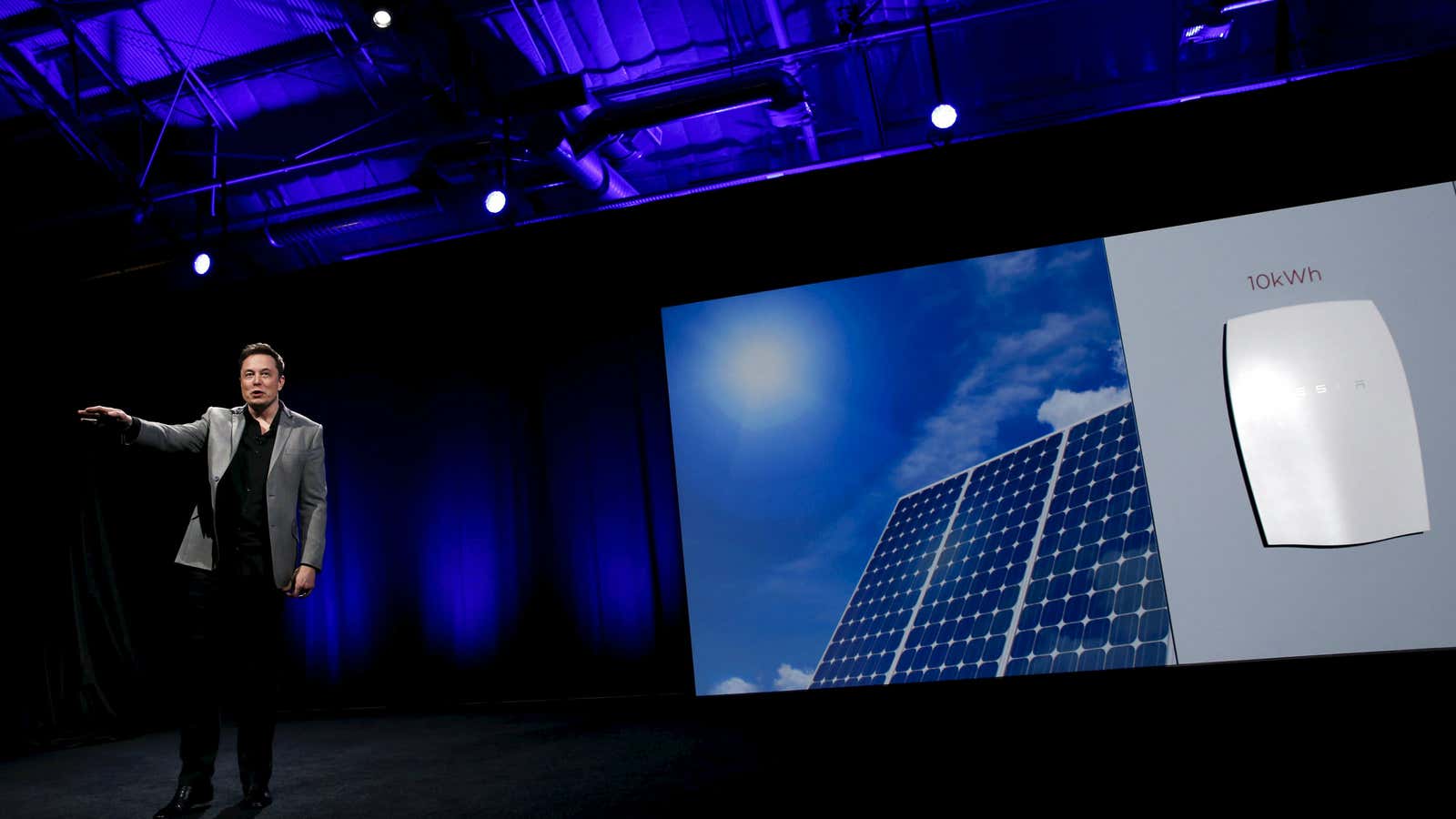With his unusual nighttime product launch, Elon Musk has again revealed himself as the best combined technology showman and designer in Silicon Valley since Steve Jobs. The question is whether Musk’s cool and conviction can incite a groundswell of buyers to snap up his sleek new home and business batteries—whether they will indeed “change the way the world uses energy,” as he has described his aim.
Musk has already changed the conversation in the automobile industry and Silicon Valley—his Tesla electrics and lithium-ion battery “gigafactory,” under construction in Nevada, have jostled rivals to get more serious about creating a super-battery and better electric cars. Yet his cars and solar panels still remain niche products.
Now, with his April 30 presentation (which started an hour late, about 9 pm Pacific time), Musk has made his play for the mass market. His new vision: powering the entire world with batteries.
Musk’s vehicle is a new subsidiary called Tesla Energy, which will manufacture lithium-ion batteries for homes, businesses, and utilities. He suggests a straight line between the smart phone revolution and his batteries. “What we’ll see is something similar to what happened with cell phones versus land lines,” he told his audience, “where cell phones actually leap-frogged the land lines and there wasn’t the need to put land lines in a lot of countries.”
But will batteries go viral—will there be a battery attached to most homes and businesses the way that some 1.5 billion people around the world have smart phones?
“This is kind of an intended ‘iPad moment’ on Tesla’s part,” Jay Whitacre, a professor at Carnegie Mellon and founder of Aquion, a battery startup, tells Quartz.
One point of confusion is Musk’s economic model. He has priced his two home battery models at $3,500 and $3,000, which seems reasonable. But it is not clear whether these are subsidized prices (California offers up to 60% rebates for home battery purchases, for example), or whether the sums can come down even more. It also is unclear whether Tesla will offer incentives such as leases or monthly financing terms, which could prove pivotal commercially.
Sam Jaffe, an executive at a battery startup called Cygnus Energy, said Musk has priced his batteries well but left unstated that they require a $2,500 DC-to-AC electricity converter to actually work, and also must be installed, thus bringing the actual price to $6,000 and more. “Selling a battery pack without an inverter to a homeowner is like selling a car without the axles,” Jaffe tells Quartz.
Moreover, how much will a homeowner save by installing one of them? Musk did not say.
Ultimately, what has sold smart phones, of course, was barely anticipated when they were marketed—not phone calls necessarily, but apps, games, cameras and so on. Batteries won’t have that advantage.
But Musk’s product are similar to the phones in one respect. “The product looks really cool in an industry devoid of anything cool,” said Venkat Viswanathan, a professor at Carnegie Mellon.
